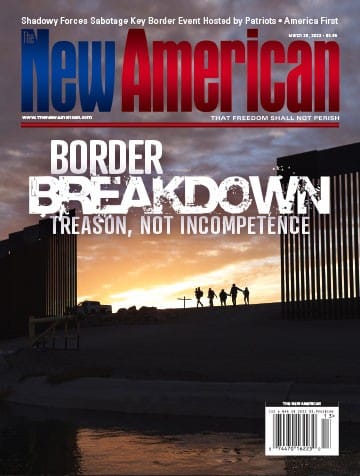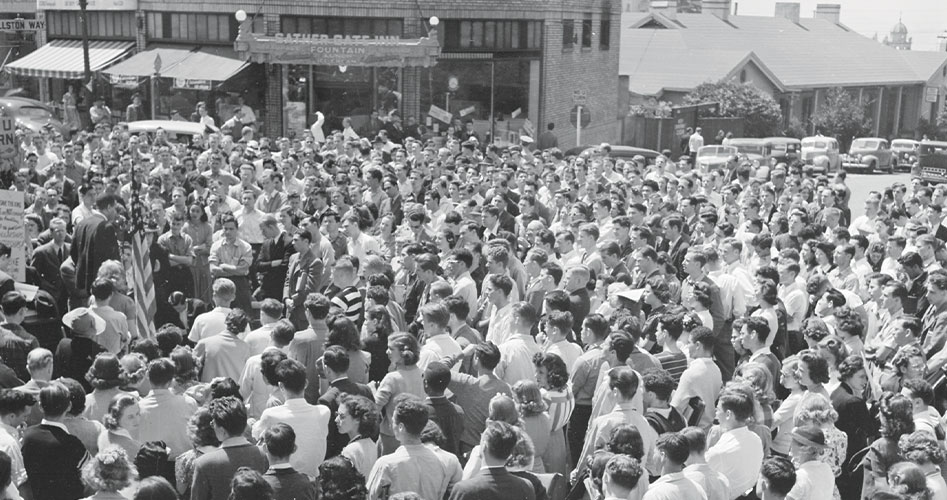America First
When President Donald Trump vowed in his first inaugural address to always “put America first,” he touched on a theme seldom heard by the American electorate in more than 70 years. Despite decades of foreign policy seemingly prioritizing the interests of illegal immigrants, the sanctity of distant borders such as the Korean DMZ, and foreign military alliances such as NATO — everything, it would seem, aside from American citizens, American borders, and American defense — the rational impulse to prioritize national self-interest has never been completely stifled by internationalist elites.
In fact, the catchphrase “America First” has been around since the late 1800s, coinciding with America’s very first dalliances with internationalism. It was disingenuously given currency by unapologetic internationalist Woodrow Wilson as a rhetorical sop for those who suspected — correctly, as it turned out — that he intended to embroil America in World War I. And it was resurrected after the outbreak of World War II in the title of the wildly popular and — for a time — influential America First Committee, which sought to keep America and its ambitious internationalist president Franklin Delano Roosevelt out of World War II. Led by the likes of Charles Lindbergh and supported by both political leaders and rank-and-file Americans from a broad spectrum of political convictions, the America First Committee was the last time, until the rise of Donald Trump, that America hosted a consequential political movement dedicated to the fundamental proposition of Americanism, namely, that American policy should put American interests, citizens, territory, and values first.
Historical Parallels
The parallels between America of the 1930s and today are difficult to overstate. Then, as now, the American economy was burdened by unprecedented economic calamity. The great collapse accompanying the coronavirus pandemic has been the most severe since the onset of the Great Depression. Then, as now, economic recovery was being suppressed by a cadre of Big Government fanatics, led by a president with grand Utopian designs of radically restructuring American society and enlarging without rational limit the powers and cost of the federal government. Then, as now, international commerce was on an exceedingly unsound footing. And in the 1930s, as in our time, swaggering dictatorships ascended to superpower status, spewing threats of war and sowing paranoia among their cowed citizenries. One of today’s dictatorships has even managed to showcase its regime by hosting a controversial Olympics, just as Germany’s Nazis did in 1936.
JBS Member?
Sign in with your ShopJBS.org account.
 Subscribe Now
Subscribe Now
- 12 Issues Per Year
- Digital Edition Access
- Digital Insider Report
- Exclusive Subscriber Content
- Audio provided for all articles
- Unlimited access to past issues
- Cancel anytime.
- Renews automatically
 Subscribe Now
Subscribe Now
- 12 Issues Per Year
- Print edition delivery (USA)
*Available Outside USA - Digital Edition Access
- Digital Insider Report
- Exclusive Subscriber Content
- Audio provided for all articles
- Unlimited access to past issues
- Cancel anytime.
- Renews automatically



